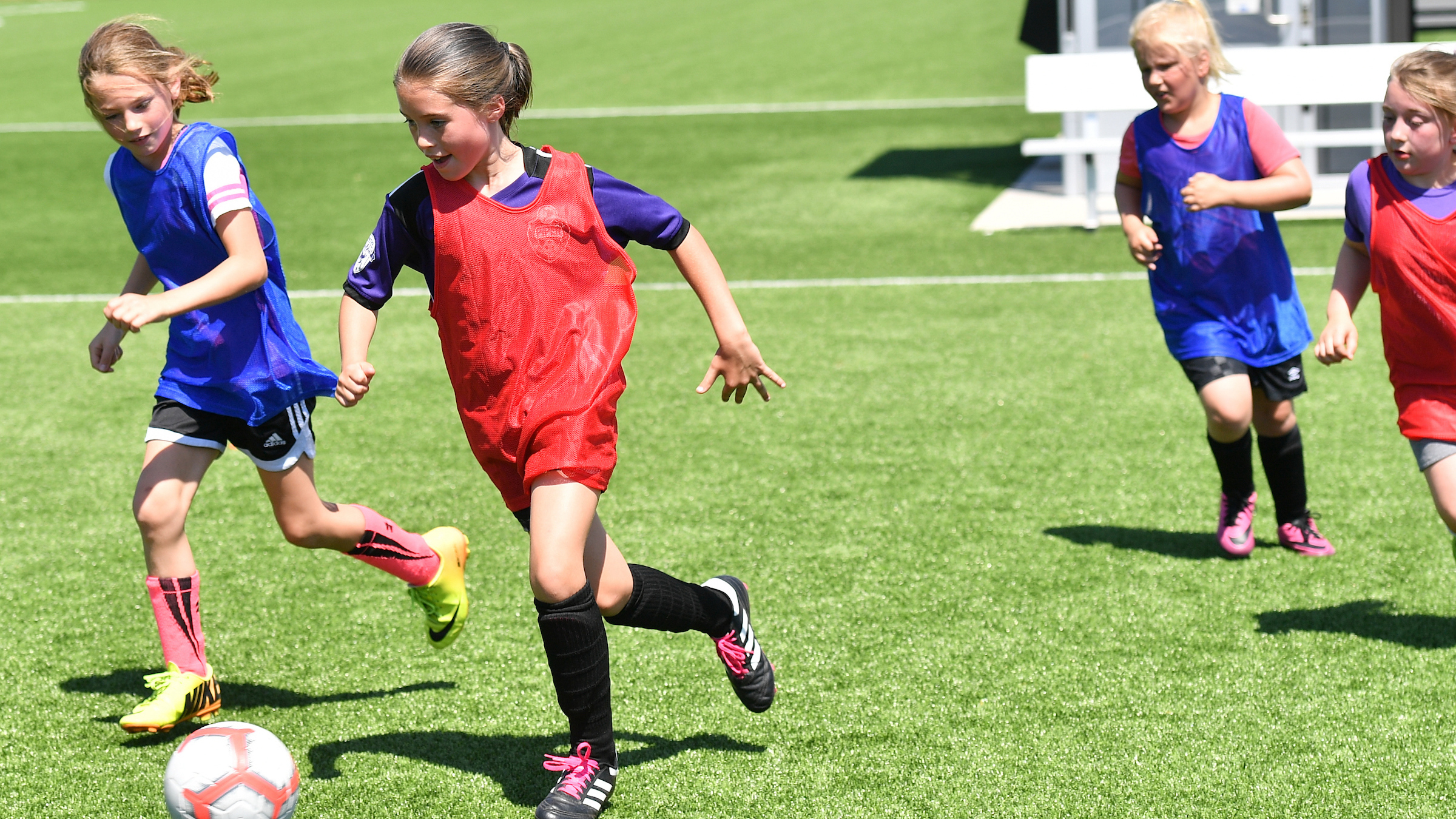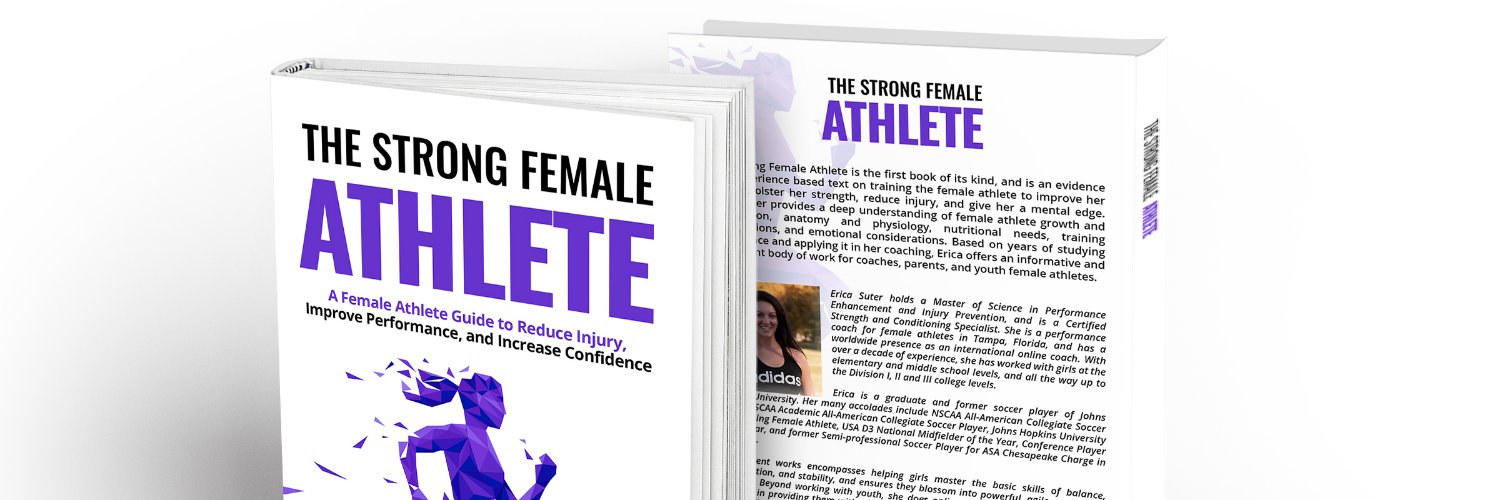Originally published on EricaSuter.com
Follow Erica Suter: Twitter | Instagram
Order ‘The Strong Female Athlete‘ Book on Amazon
The same people who say they’re empowering female athletes, are dis-empowering them.
It’s sad because in the past decade, female athletes have made incredible strides.
On the performance training front, girls have become more motivated to get in the gym and lift.
There’s less of a fear of becoming “bulky.”
Girls are taking ownership of their strength. Girls ECNL teams have assess to club performance coaches. Women’s college programs have a full-time strength coach and a director sport science.
Girls have hired their own performance coach. There isn’t a shortage of performance facilities. The market is saturated. I’ve been in this industry for over ten years and there’s a new strength coach at every block. Mind you, there’s online access and free programs all over Google.
Now more than ever before, more female athletes have coaches. More are taking the off-season to build themselves up. They’re walking into the gym with confidence. They’re cranking out pull-ups. They’re pulling heavy weight off the floor.
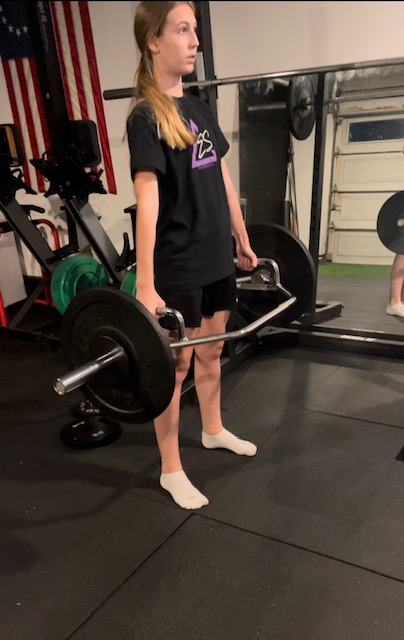
This is great news for girls.
With more evidence-based research than there was ten years ago, female athletes are understanding why it’s important for them to strength train and take care of their bodies. Everything has been going well.
Until…
Too much science has turned into bad science and has taken female athletes decades in reverse.
The Female Factor
You’ve heard it before, “girls are 2-6x more likely to tear their ACL due to their anatomy” and “they have a narrower intercondylar notch, wider pelvis, which causes more load on the ACL.”
I’m not going to deny that anatomy can play a role in increased injury risk, but more than the female factor, lack of sound performance training that works on motor control, strength, speed, and power, is the bigger culprit for high injury risk.
More than the female factor, lack of sound performance training that works on motor control, strength, speed, and power, is the bigger culprit.
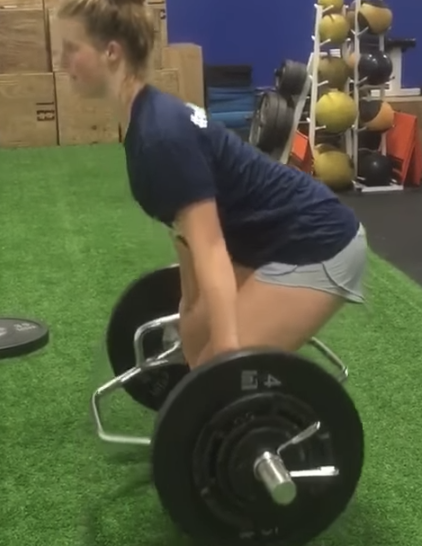
Being female isn’t the dominating force in injury risk. Dr. Tim Hewett points out in his research that there are a lot of factors girls can control. They can focus on single leg strength. They can work on trunk stability. They can build their hamstrings. They can work on decelerating and controlling their momentum. They can work on more power production. They can improve their capacity to handle high speed running.
Eventually, we have to drop the blame on girls being girls, stop saying they’re doomed because they’re female, and do something productive.
Eventually, we have to drop the blame on girls being girls, stop saying they’re doomed because they’re female, and do something productive.
Injuries are Multi-factorial
There are controllable and uncontrollable factors.
Uncontrollable: playing surface, weather, climate, anatomy, being female
The truth is, a healthy female athlete should always have her menstrual cycle. This isn’t going away any time soon, and it shouldn’t! A regular cycle is needed for a functioning body. You also can’t change anatomy and the structure of the hips in relation to the knee. I mean, maybe if you wanted an excruciating surgery done. :-O
You also aren’t changing the turf fields any time soon. I’m not the biggest fan of turf, but stakeholders in youth female sports are attracted to it because it’s a more economical investment. So instead of blaming turf, why don’t you go talk to the stakeholders and do something about it?
Stop Complaining and Do What You Can Control
If you claim to be empowering female athletes, yet complain, and fail to equip them with what they can control, you’re missing the mark.
If you claim to be empowering female athletes, yet complain and fail to equip them with what they can control, you’re missing the mark. So what can we do?
Controllable: performance training, load management, nutrition, sleep, recovery (and if these are done diligently, these impact better hormonal balance during the menstrual cycle). It’s all a win-win.
I’ve heard adults shout, ‘you can’t ignore the female factor! It’s a big issue in ACL tears!” Well, yes, thank you Captain Obvious, but why would this be the messaging I blast a young girl with? To tell her that she’s broken when she’s not?
Please. Stop.
First off, she’s not fragile. She’s a strong, young woman capable of so much. She can take charge of her training and life.
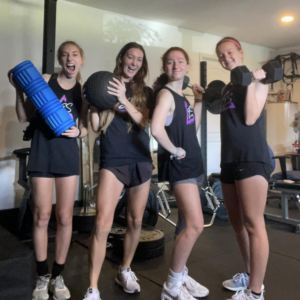
I don’t get why “her being female and being high risk” would be a focus. We can’t do anything about it.
It’s similar to saying to a family member, “heart disease runs in the family. You’re screwed. It’s genetics. Can’t do much!” This is not empowering.
With consistent lifestyle changes – less sugar, less alcohol, less TikTok, more exercise, more sunshine, and more whole foods, disease, sickness and injury can all be reduced drastically. There’s always hope.
Maybe it’s the eternal optimist in me, but I want girls to actually be empowered.
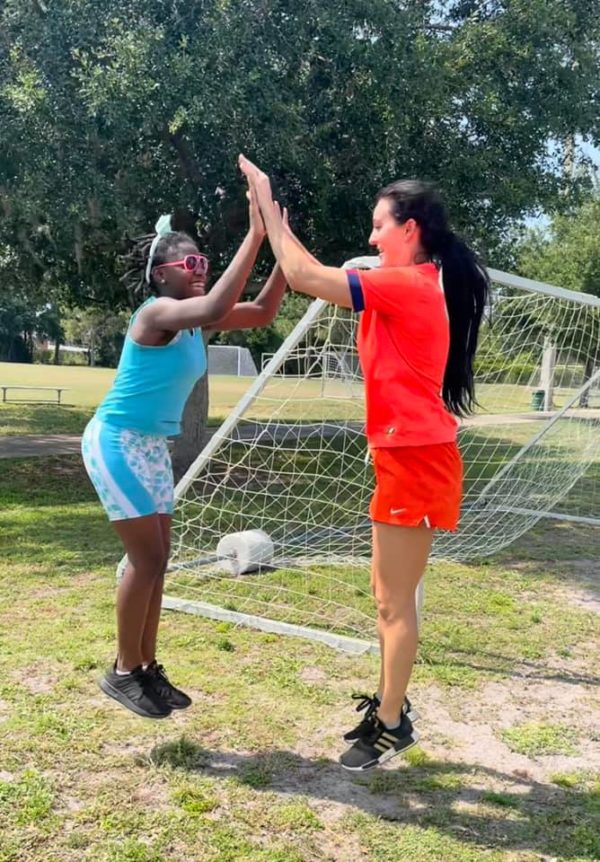
“She Did Everything Right and Still Got Injured!”
It’s tough to go through sports unscathed. And this is the tough reality of all sports, male and female.
The issue is, many will screech their female athlete did everything right and still got hurt…because she’s female.
For starters, did she reallyyyyyyy do everything right? Did she? Did she have the perfect regimen? Did she get over 8 hours of sleep a night? Did she consume enough calories on game day? Did she consume anti-inflammatory foods? Did she build up her collagen? Did she check protein consumption based on her weight? Did she have a true off-season from competitive play? Did she continue strength year-round? Did she speed train in season to fire her hamstrings?
Did she also do load management right? This means she would have calculated her acute to chronic workload ratio, had an entire workload dashboard built in Excel, knew what data to analyze, and was diligent about her tactical periodization. Which means, she talked to her coach about workload targets in practice and stood up for herself.
Did she really do everything right?
Do Better Facilities Mean Reduced Injuries?
I don’t even know professional players that have done “everything right.”
Even with all the access to better facilities, more resources, more technology, more gurus. and more experts on staff than ever before, professionals still get hurt. Don’t confuse better facilities and large staffs with reduced injury risk.
You don’t need much equipment to load and get strong. You don’t need to always buy $12 acai bowls and $8 smoothies to stay healthy. You don’t need to buy overpriced supplements. Produce and veggies are cheap if you shop at Aldi. Never buy full price at the grocery store. Buying the essential macronutrients is easy. You don’t need special treatment to stay fueled. You don’t need to hire the best nutritionist. Go on Google. All the information on the macros is at your fingertips.
You don’t need to follow everything Dr. Andrew Huberman’s says. His expensive and time consuming recovery methods that don’t cater to the busyness of the average human aren’t needed. They’re just icing on the cake.
Nose breathing is free. So is sleeping, walking, getting sunshine, hugs and laughter. In fact, a good belly laugh is incredibly potent for the nervous system to reboot.
You don’t need a flashy facility with the latest gadgets and gizmos to improve performance.
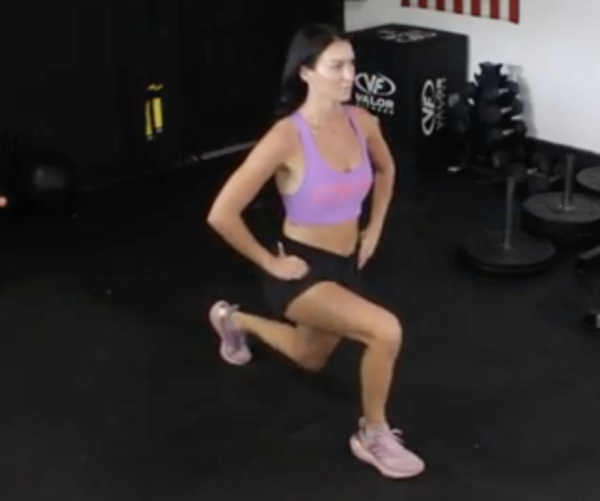
I grew up working out in a run down gym in the basement of a mini golf center. It looked like a dungeon. The walls were rusted. The floor was grimy. But hey, I still learned how to deadlift, load my body, and track my lifting progress. I had a blast training. The environment was gritty. I was surrounded by male and female athletes who had an insatiable desire to get better. We didn’t need much to accomplish a lot.
“I have learned, in whatever circumstances I am, to be content. I know also how to be abased, and I know how to abound; in everything and in all things I have learned the secret both to be filled and to hunger, both to abound and to lack.” – Philippians 4:11-12
Basics always win, so the blame can’t be put on lack of resources. I know athletes who have a $10 a month membership at Planet Fitness, and they have everything they need to implement a performance program with progressive overload. Free weights. Pull-up bars. Resistance bands.
Reducing costs further, I have girls who purchased power blocks that can be adjusted for weight up to 100 lbs. This equipment is a great investment for athletes who train for several years. The truth is, you don’t need much to become strong.
And for the younger girls, namely elementary and early middle schoolers, they can get outside and load for free. Climb trees. Wrestle their siblings. Chase dad. Sprint. Tag. All while gaining a rich set of motor skills. For FREE. You don’t need to be drowning in year-round club dues to build athleticism.

I used to work at a state of the art performance facility in Maryland, and sure, athletes stayed healthy with no major knee surgeries. We had jump mats, PitSharks, 8 squat racks, sleds, TRX systems, and more.
However, my athletes have been just as well off from working out of my home gym in Florida. It’s a quarter of the size of where I used to work. I have a garage gym with the bare minimum equipment to train and get the job done.
I’m a minimalist more than I have been in my entire life. I don’t need a lot of things because the beautiful truth of simplicity always shines through. Mind you, it makes life easier. Less choices, less decisions, less distractions, less fluff. <— taking this further, I wear the same t-shirt every day to work. :-O
Female athletes are bombarded with way too much nonsense.
Simplicity truly is the highest form of sophistication. As long as you have some modality to load with, you’re on the right track.
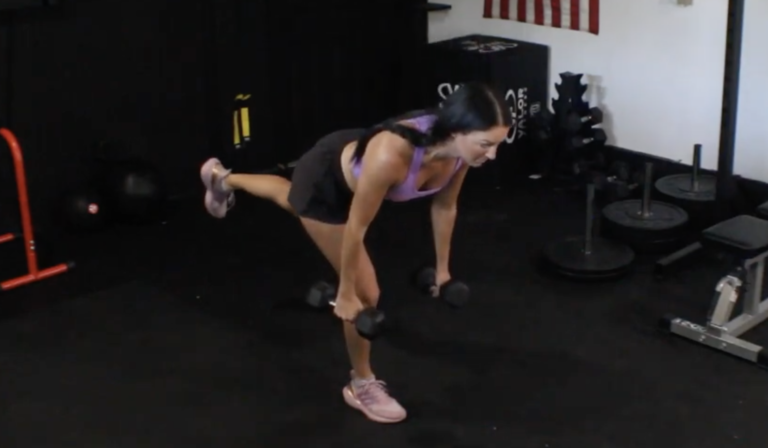
Does having the best resources make athletes better off?
Why do the best men’s soccer teams in the English Premiere League still suffer from hamstring strains? Then why did Alex Morgan suffer knee injury? Mallory Swanson? Why do women’s basketball players in the Big 10 in all its abundance and technology still suffer injury? How do you explain the unlimited resources in Major League Baseball and still, their astronomical amount of Tommy John elbow surgeries?
More doesn’t always mean better. More experts on staff doesn’t mean athletes are immune to injury. More money flowing into clubs, doesn’t mean they’re hiring the right people for the job. We can’t reduce the blame to lack of resources. It’s narrow minded. And it’s dis-empowering.
This reminds me of a passage “The Crisis of Civilization” from Charles Eisenstein’s book Sacred Economics. It discusses the paradox of having more resources and riches:
We have bigger houses but smaller families;
more conveniences, but less time.
We have more degrees but less sense;
more knowledge but less judgment;
more experts, but more problems;
more medicines but less healthiness.
We’ve been all the way to the moon and back,
but have trouble in crossing the street to meet our new neighbor.
We built more computers to hold more copies than ever,
But have less real communication;
We have become long on quantity,
but short on quality.
These are times of fast foods but slow digestion;
Tall men but short characters;
Steep profits but shallow relationships.
It’s a time when there is much in the window,
But nothing in the room. –Authorship unknown
Charles Eisenstein’s ability to think through all sides of a problem from an economical, philosophical, and sociological perspective is downright refreshing. He doesn’t reduce the blame to a single cause or one group of people. He provides a deep analysis of all contributing factors to an issue.
I believe people in female sports need to do the same.
Athletes also need to return back to basics of training and athletic development and not get caught up in the noise of the gurus. They need to take responsibility. They need to be disciplined.
There’s No Perfect Injury Prediction and Prevention Model
Look. No one is going to be perfect with these controllables. There’s no perfect human!
But, you can try your best and be educated on each. More often than not, only some of these buckets are filled. Most girls have training down, but very few have nutrition, sleep, and load management down. This is why I’m trying to educate the best I can.
Hypothetical: say in a perfect world everything was done right, what would you blame then if you got an ACL? Would you play the victim, wallow in sorrow that you’re a female? Would you throw up your fist and blame the turf field? Would you scream, ‘it was because I was in my Menstrual Phase!’ What good is this anyway? Is it productive? Does it make you feel better? Or does it leave you more bitter and resentful?
Or maybe you can focus on coming back stronger? Or learning how to cook healthy meals? Or educating yourself on GPS technology and load management? Or learning the importance of recovery and an off-season? Would you put the focus on what you can do moving forward? Would you feel more empowered taking this route?
Try it out.
See what happens when you stop blaming the female anatomy. See what happens when you aren’t a victim to how you were born. Realize that being a young woman is empowering.
See what happens when you stop blaming the female anatomy. See what happens when you aren’t a victim to how you were born. Realize that being a young woman is empowering. And that’s going to require you take responsibility for your life and athletic development the best you can.
Be diligent with your nutrition. Get 8 hours or more of sleep a night. Don’t let your body be treated like a dumpster. Strength train year-round, not just the off season. Don’t wither away during the season. Make recovery a priority. Communicate with your coach your load needs. Stop specializing early and build all muscle groups. Play in the front yard for free. Get off your phone. Allow your brain to rest. Eat enough protein.
And until you do all these…stop blaming the female factor for your injuries.
About The Author:
Erica Suter is a former college 3x All-American soccer player from Johns Hopkins University. She is giving back to the game and to female soccer players as a full-time performance coach. She holds a Master of Science in Exercise Science and has been helping girls with speed, agility, strength, and conditioning for over 12 years in the ECNL, GA, and NPL.
Her players have gone on to play college soccer at UNC, University of Maryland, Pittsburgh, Towson University, University of Charleston, MIT, Johns Hopkins, Carnegie Mellon, Rutgers, and more. (Website: ericasuter.com)
For more research, get THE STRONG FEMALE ATHLETE book:


